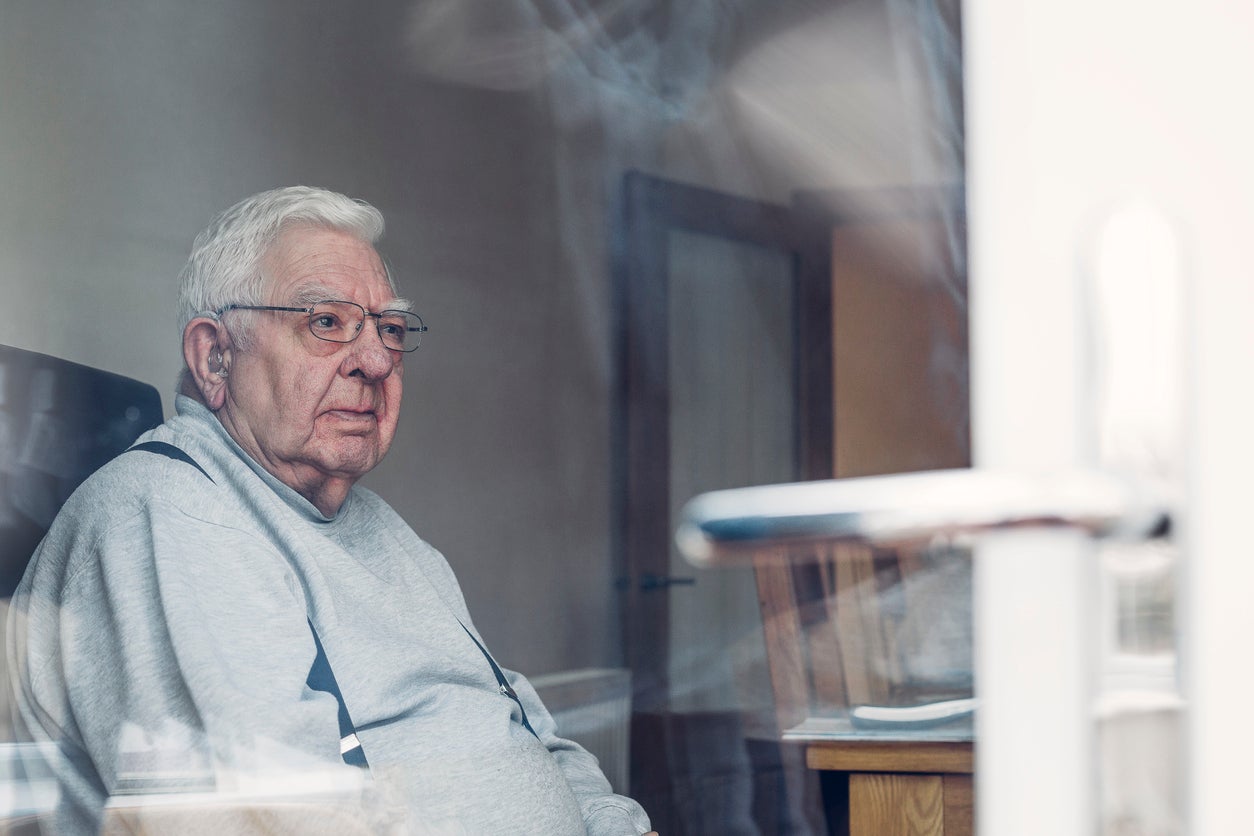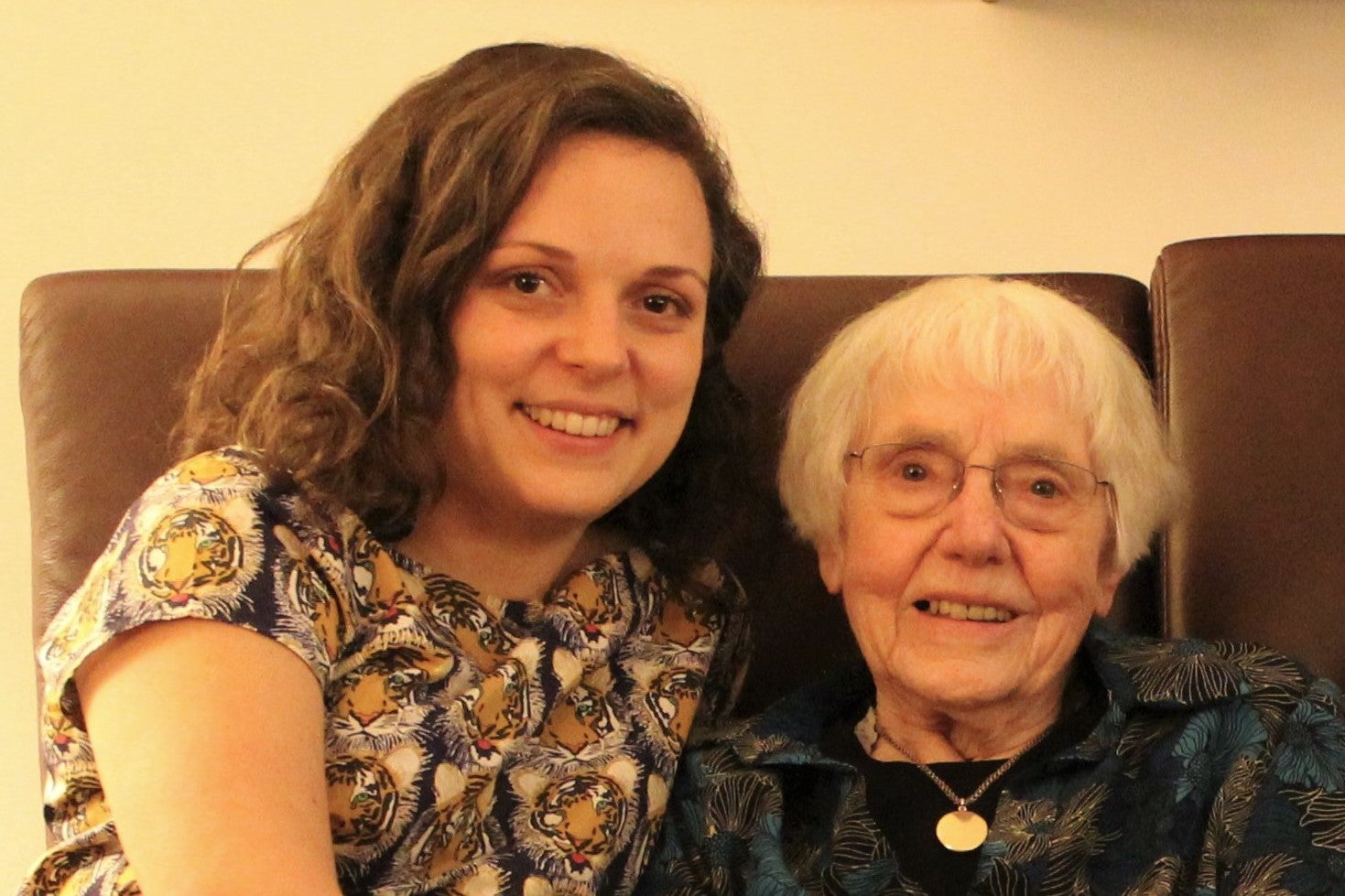‘We feel incredibly powerless’: What it’s like for those whose loved ones are in care homes right now
As more information comes to light on how hospital patients were discharged into care homes without being tested for coronavirus, Helen Coffey speaks to those whose family members are vulnerable


“I am worried, yes, because I think if she gets it, she’s not going to survive it. I don’t think she has the mental or physical strength to fight.”
Ruth Mead, a primary school teacher from North London, is talking about her 96-year-old grandma, Elsie, who moved into a care home between Christmas and New Year. When Ruth says “it”, no further explanation is needed – we all know the silent enemy she’s referring to. And, as it turns out, with good reason; there have now been several cases of Covid-19 among the residents in her grandmother’s Islington care home.
Ruth is in the same position as thousands of others across the country, forced to wait in fear while their loved ones are quarantined in residential care homes. Increasingly, news is coming to light about alleged mistakes made early on in the coronavirus outbreak when it comes to this vulnerable group: in particular, the decision to discharge hospital patients back into care homes without testing them for the virus first. Even residents and staff who displayed symptoms weren’t eligible for tests right up until 15 April.
The result is that more than 10,000 people have died with coronavirus in care homes in England and Wales, according to official figures released on 20 May, while a further 3,400 care home residents with Covid-19 have died in hospital. Nearly 6,000 care homes across the country have reported suspected outbreaks.
Prime minister Boris Johnson may have insisted on 13 May that his government moved swiftly, saying, “We brought in the lockdown in care homes ahead of the general lockdown,” but this assertion doesn’t stand up to scrutiny. On 13 March, Public Health England issued new guidance to care homes, saying that visitors who felt unwell shouldn’t visit care homes, but emphasising the “positive impact” of seeing friends and family for residents. No ban on visitors was suggested, and no further guidance was given to care homes before the nationwide lockdown on 23 March.
It’s not hard to see how care homes quickly became breeding grounds for Covid. Residents often live in close quarters, dining and socialising together – the phrase “sitting ducks” springs to mind. Being disabled or elderly, sometimes with other complex physical and mental needs, they are particularly vulnerable. But it wasn’t until recently that the plight of residents garnered much attention. In fact, for the first five weeks of the UK lockdown, care home residents weren’t even counted in the UK’s official coronavirus death toll. It was like they were invisible.
This feeling is reflected in the way some care homes have communicated with families of residents. For Corin Pilling, a charity worker whose 74-year-old father lives in a care home in the Midlands, the hardest part has been feeling in the dark about what’s happening.

“To give the care home their due, they locked down very early – but there was nothing in place in terms of communication,” he says. “Overnight, we went from my mum visiting my dad on a daily basis, to nothing. There was no routine, and no means of getting in touch with him – and this went on for weeks.”
The family felt out of the loop for more than a month, with information and updates from the care home “incredibly sporadic”. The only way to make contact was to call the number for reception, which frequently rang out with no answer. “It created a lot of anxiety,” says Corin.
Corin’s dad has a neurological disability, the nature of which means he’s reliant on others in order to communicate. And, at a time when staff were stretched to breaking point, this fell to the bottom of the priority list. Shielding residents was – quite rightly – the number one concern, but treating communication as a luxury, rather than a fundamental right, left families like Corin’s feeling upset and isolated.
“It caused a lot of distress for everyone, not having any regular channel of communication,” he says. “You feel like you’re asking for a favour, not something that is a basic human need. But it is a need – as humans, we all need to feel connected to others. It’s a need my dad has, and it’s a need that we have as his family, as the people who love him.”
The lack of communication also heightened fears about the virus for those on the outside. Rumours abounded that residents had become infected – rumours that eventually proved unfounded. “At one point we were very concerned,” says Corin. “We felt incredibly powerless. My father’s setting is much more clinically controlled than other homes, with specialist care rather than regular residential care home facilities.
You feel like you’re asking for a favour, not something that is a basic human need
“But I can completely relate to that feeling of anxiety that others must be feeling right now. Because what can you do? I’ve even heard stories of people taking relatives out of care, just because it feels safer.”
For Ruth, too, communicating with Elsie has been a struggle. While many of us have felt more connected to family by technology during lockdown, it’s not always easy for those who are older to adapt. “It does feel like we’re cut off from her,” she says. “She has an iPad and we email her, but she’s not good at replying – and a 96-year-old trying to type on an iPad yields some interesting results! It’s all a bit one-sided, and quite difficult to get in contact.”
Before the care home went into lockdown in mid-March, Elsie was having four visits a week from family members. It stopped almost overnight, and for two months she’s not seen anyone outside the home. Ruth was not only the last person to visit her, but the last visitor to the care home, full stop. “I didn’t know it was the last time I would see her – they only told me as I was leaving. I actually felt that if I went back and told her… well, I wasn’t sure what her reaction would be.”
Like many others, Ruth is angry at the government’s perceived delayed response to the pandemic. “I feel like there was a lot of warning – in Spain there were all these problems in care homes being reported long before things got serious over here. It was obvious that care homes were places where the virus spread easily; there were horror stories of the army going into Spanish care homes and finding dead residents. It wasn’t a surprise.
“And then we find out that, well into lockdown, they were discharging patients from UK hospitals back into care homes without testing them – it just seems completely irresponsible.”
It is unclear how long it will be before it is safe for families to visit their loved ones in care homes again – a measure that, although it’s essential for residents’ safety, is still unbearably hard for all involved. There is a tendency to brush over those in society who are no longer deemed “useful” – those who don’t contribute economically or are seen as a “burden” in some way. Towards the start of the pandemic, there was a worrying number of social media posts arguing that we shouldn’t be hysterical about coronavirus, as it was “only” dangerous for the elderly and those with pre-existing conditions. They seemed to forget that these were people’s mothers, fathers, husbands, wives, brothers, sisters, children, grandparents – that they were people.
As Rory Kinnear wrote so beautifully in the Guardian, after his sister, who was disabled, died from Covid-19 earlier this month: “She did not have it coming, she was no more disposable than anyone else. Her death was not inevitable, does not ease our burden, is not a blessing.”
Join our commenting forum
Join thought-provoking conversations, follow other Independent readers and see their replies
Comments